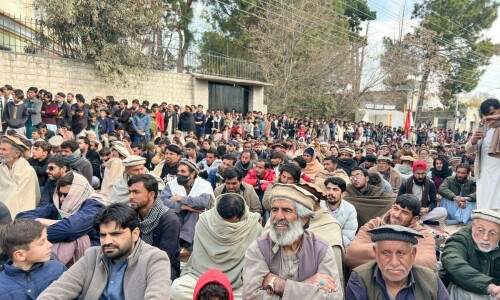ISLAMABAD, July 3: Britain on Thursday said it was doubling its assistance for Pakistan to 480 million pounds over the next three years under its new country plan. Most of the amount would be spent on education and in regions bordering Afghanistan.
“In the latest country plan we have allocated 480 million pounds for the period 2008-2011 to help poor people in Pakistan,” British Secretary of State for International Development Douglas Alexander told a media briefing at the British High Commission. By 2011 Pakistan would become the second largest recipient of British assistance worldwide.
“The response we are offering in the shape of development assistance is a reflection of the shared concern for future of Pakistan, which is felt not just by the government of the UK, but also by the British people.”
The assistance would be used to support sectors like health and reconstruction in earthquake-hit areas, which were already getting British aid. Additionally, the aid would be utilised to help Pakistan improve school enrolments through bettering classrooms and quality of teachers and provide skills needed by young people to get jobs.
More than £250 million will be used to bring five million children into school and to increase training opportunities for the youth.
The new country plan also aims to provide further assistance to civil society for making people more aware of their rights and help ensure poor people get the services they need.
Dealing with effects of climate change and extending support and programming to Balochistan are also envisaged in the assistance plan.
“We have been committed to helping Pakistan's efforts in the fight against poverty for many years. Our aim is to continue to help improve poor people’s lives in key areas, making sure they have access to better healthcare, schools and employment opportunities,” Mr Alexander said, adding that support would be extended to areas bordering Afghanistan, where levels of insecurity were high and aid was desperately needed.
The targets for the assistance plan outlined by the development secretary included five million more children in primary schools; 500,000 young people gaining technical skills; saving lives of 350,000 children and 30,000 pregnant women; 2.5 million fewer malnourished children; and eight million prevented cases of tuberculosis.















































Dear visitor, the comments section is undergoing an overhaul and will return soon.